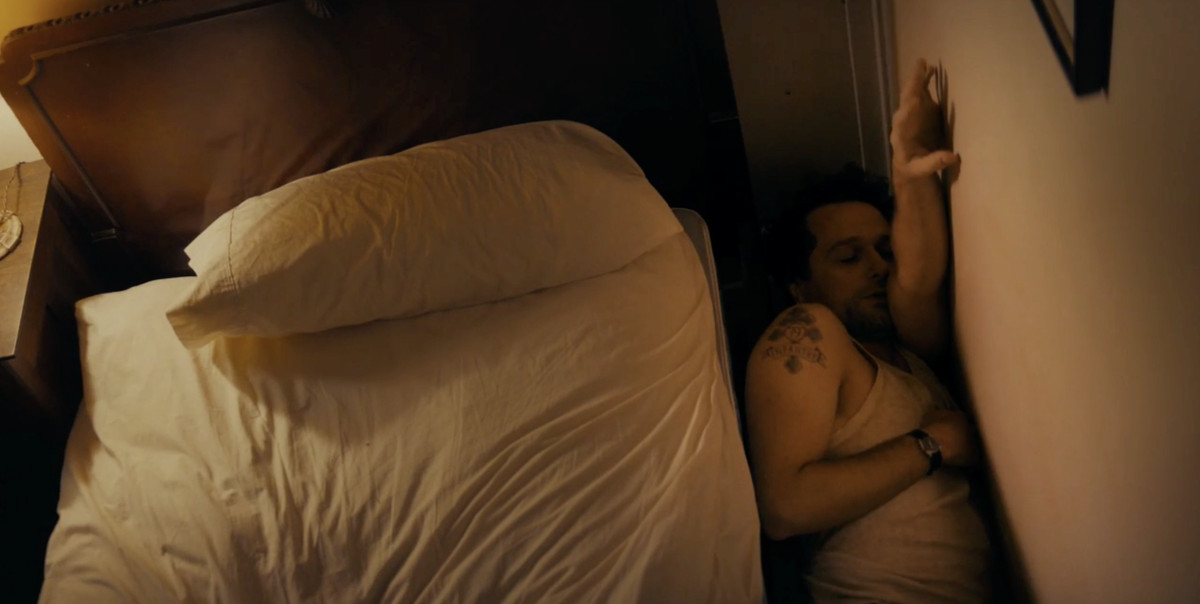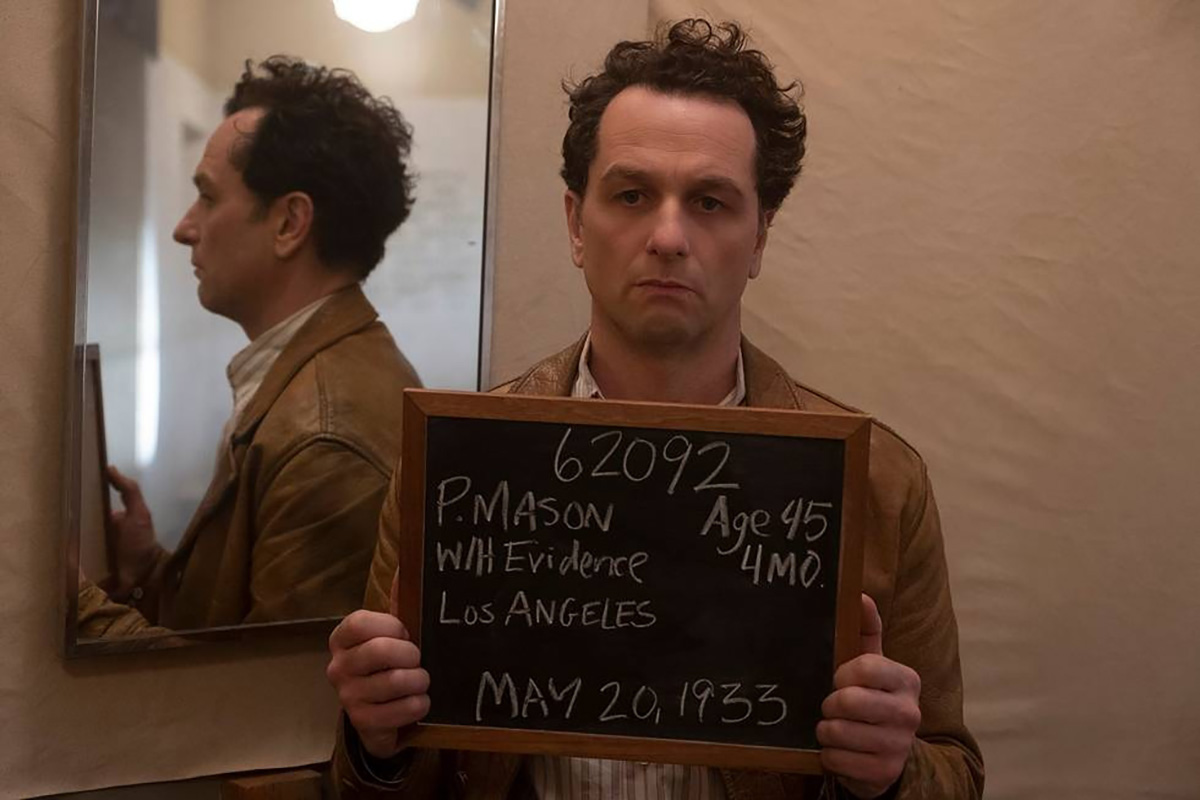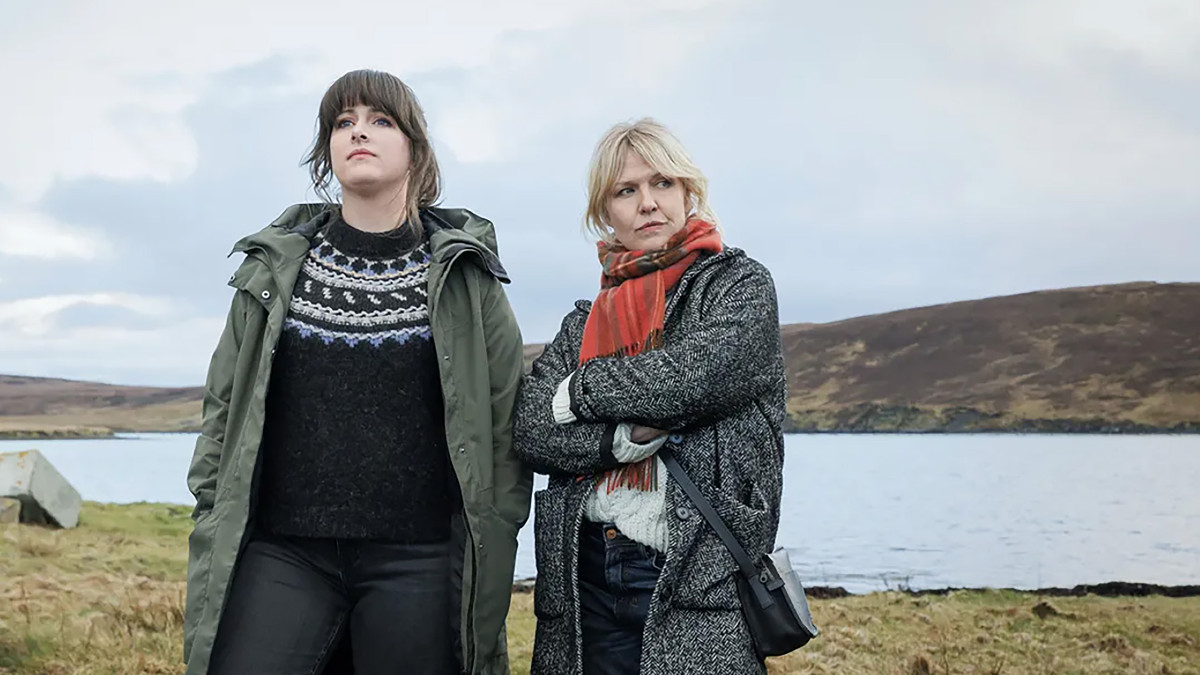Matthew Rhys’ take on the iconic character of Perry Mason is one that has many new fans attracted to the series. A criminal defense lawyer, Perry is a bit of a mess himself but he’s good at his job and throughout the series, we fall in love with his tactics. For me, I’ll never stop thinking about that shot from the pilot where Perry Mason is laying next to a bed and just looks incredibly sad.
You know…this one:

It’s iconic and sad and exactly how I now picture Perry Mason as a character. Which is, for me, what stands out about this series. It understands how deeply sad and flawed a character like Perry can be and doesn’t shy away from that and make him anything other than a real human character. Which is why I think this new series is such a great addition to the lore of Perry Mason as a whole.
Learning that the second season of Perry Mason had primarily female directors and a man of color behind the lens was a twist that, frankly, the show needed. The original Perry Mason was a male dominated world, which isn’t a shock seeing as it premiered in 1957. But the new show, which is an HBO series produced by the duo of Robert Downey Jr. and Susan Downey for their company Team Downey, challenges the male world of the original series and subsequent movies. And in talking with the directors for season 2, they all had wonderful things to say about their collaboration with Team Downey and HBO as well as putting their own spin on the story.
Fernando Coimbra on bringing film noir to life
One of the things that director Fernando Coimbra and I bonded on was our shared love of film noir. Which fits perfectly in with a show like Perry Mason. And so I asked what the challenge as a director was of bringing to life something like Perry Mason that is such a specific tone and vibe while also maintaining your own style as a director. “For me, especially, I think I’m a huge fan of the film noir, you know, the movies from the 40s and I watch it a lot,” he said. “It’s a big influence for me as a filmmaker. So when they got in touch with me to do Perry Mason, I was like, ‘oh, that’s for me, like it’s a dream’. I can make a TV show that had that kind of look, that atmosphere, the mood and that kind of story. And to shoot it in LA with all the sets that reconstructed, rebuilt the 1930s and all that visual stuff, the hats, the way they dressed, everything for me is like, ‘whoa, that’s appeared.'”
And for Coimbra it came from a lifelong love of the film noir and this genre of film that made him want to be a director. “I wanted to be a director and make that kinda movie. So for me it was very familiar and I never made noir like this, but my film that I did in Brazil, in Rio has this kind of noir look,” he said. “With the light and shadows and this characters who have a lot of light and shadows in their minds and soul. And this kind of police story investigation and crime. And so for me it’s the kind of thing I like to do. And so it was not like a challenge to try to get out of the line. You know, there’s no effort, that’s how we do this show.”
Using noir to up the drama with Marialy Rivas
Marialy Rivas’ approach wasn’t much different thank Coimbra’s but our conversation showed how different each director on this season was and how they’d use their skills to bring the genre to life in their own way. For Rivas, she talked a lot about her approach to noir and how it is about the lighting as much as a character’s moral complexity as well.
“Noir is a style, right? It has its morals, but it’s also a visual style,” she said. “So of course I study a lot of noir and season one in particularly, and also episodes 1, 2, 3, 4, all the daily list. Cause I wanted to really see what they were building up on this season. But I also wanted to find something new for my episodes. So what I love about Perry Mason is that I think it’s very complex, ethically and morally and these characters are facing contemporary decisions. Like even today a lawyer can be faced with that. Of course the genre allows you to visually do a standing light camera movement or lighting.”
She went on to talk about letting the character guide her in how to use the style and camera within a scene. “But, but I try to find the humanity and the darkness in the moral decision they’re making because I think it’s the essence of the show as well, you know? So, this is what I like to, it’s always drives the story and the characters for any decision about style or camera.”
Nina Lopez-Corrado on the female lens and Perry Mason
The moment I learned that the second season was primarily directed by women, I found myself obsessed with it. Not because I wasn’t already but because a show like Perry Mason really does benefit from a female perspective on it. And for Nina Lopez-Corrado, she loved coming into the series and working with other women to bring her vision to life for the episodes she directed. I asked her what it was like coming into a show that has three female directors out of the four present on season 2.
“It was amazing,” she said. “I love the essence of all female directors. I was the producing director on A Million Little Things during the Pandemic. And when I was up in Vancouver, I split the season. I directed every other episode and I brought in two other females to split to do the whole season with me. So it was 22 episodes of all female directors. And it was crazy. So coming into Perry Mason, by the time I had got there, the first director (Coimbra) had left. So, I was just collaborating with the other two female directors. And it’s like this interesting dynamic because, you know, it goes one of two ways, right? Females either bringing each other down or they like really bring each other up. And on Perry Mason, everyone was bringing each other up.”
She went on to talk about how collaborative the experience was. “The director who directed before me was not experienced in American television. And her openness to ask questions and wanting to learn about our process and kind of like tap into the experience that I have was so incredible and something that I feel like maybe most male directors wouldn’t do. For whatever reasons they have. But we didn’t have that at all. And so we were always on each other’s sets and like watching how everyone was doing the scenes, because, you know, TV is such a unique thing, right? You wanna bring your own perspective, but you want it to fit in a mold so that every single episode feels like it is directed by the same person, just with a little bit of flare. And so being able to kind of feed off of each other was really kind of amazing and fun and something I hope I get to do again in the future.”
Jessica Lowrey on collaboration
While Perry Mason is an HBO series, it also is a production with Team Downey as well. And for so many creatives, working with HBO is a dream come true first and foremost so I asked Jessica Lowrey about the collaboration process with a company like HBO and how that works to bring her vision to life.
“Look, it is always exciting to be able to stretch and grow and to challenge yourself,” she said. “And it’s wonderful working for a company like HBO because you do know that the audience is savvy and they’re expecting considered work. And it allows you to justify being considered and being choosy and being picky about the choices you’re making because we want to satisfy the expectations, the audience, but it also allows us to push ourselves and satisfy our own desire to think through everything and make sure every choice… I mean, is there such a thing as the right choice? Who knows. But if we’re thinking that, ‘okay, I wanna make sure this is the right choice so that it’s really important to me that the audience feels taken care of, if we are paying attention to the details,’ then you don’t have to, you can just enjoy and know that you’re being taken care of. And we as the storytellers are thought through that. And I think that is what you can expect from a show on HBO is that again, everything is considered, everything is elevated and you can just enjoy watching a story that has been thought through literally from someone’s hairstyle to the color of their costume, to the color of the sky, to the words that are coming out of a character’s mouth.”
But I brought up to Lowrey how I loved that the season was not solely a male-dominated production behind the scenes and pointed out that Team Downey often gives opportunities to new talent or creatives that aren’t just the same directors over and over again. “And I think you’re right to salute Team Downey from making the choice to looking into making non-obvious choices to tell the story,” Lowrey said. “And I believe that women are great storytellers. We move through the world in a different way. We are constantly living in the world wondering about the subtext. What are you not saying to me? What is, what are you, what you know, we’re always reading between the lines. So as storytellers, we’re doing the same thing with the characters is what the characters want and what are they not saying and how can we pull out that subtext and really layer things in? Because I think all of us as women are constantly living in between the lines.”
_______________________________________
Perry Mason season 2 is now on HBO.
(Featured image: HBO)










Published: May 12, 2023 03:11 pm